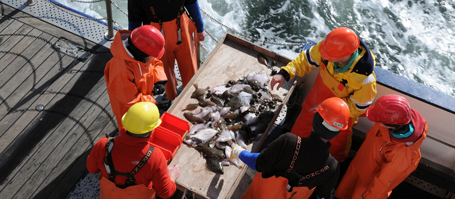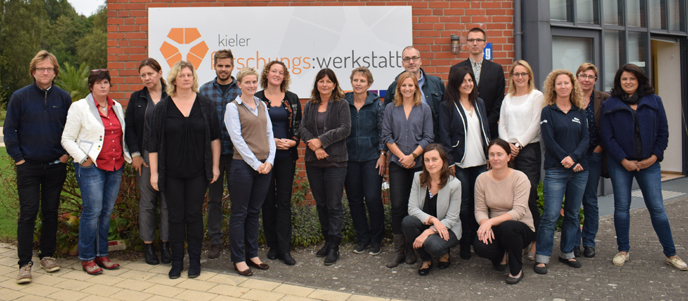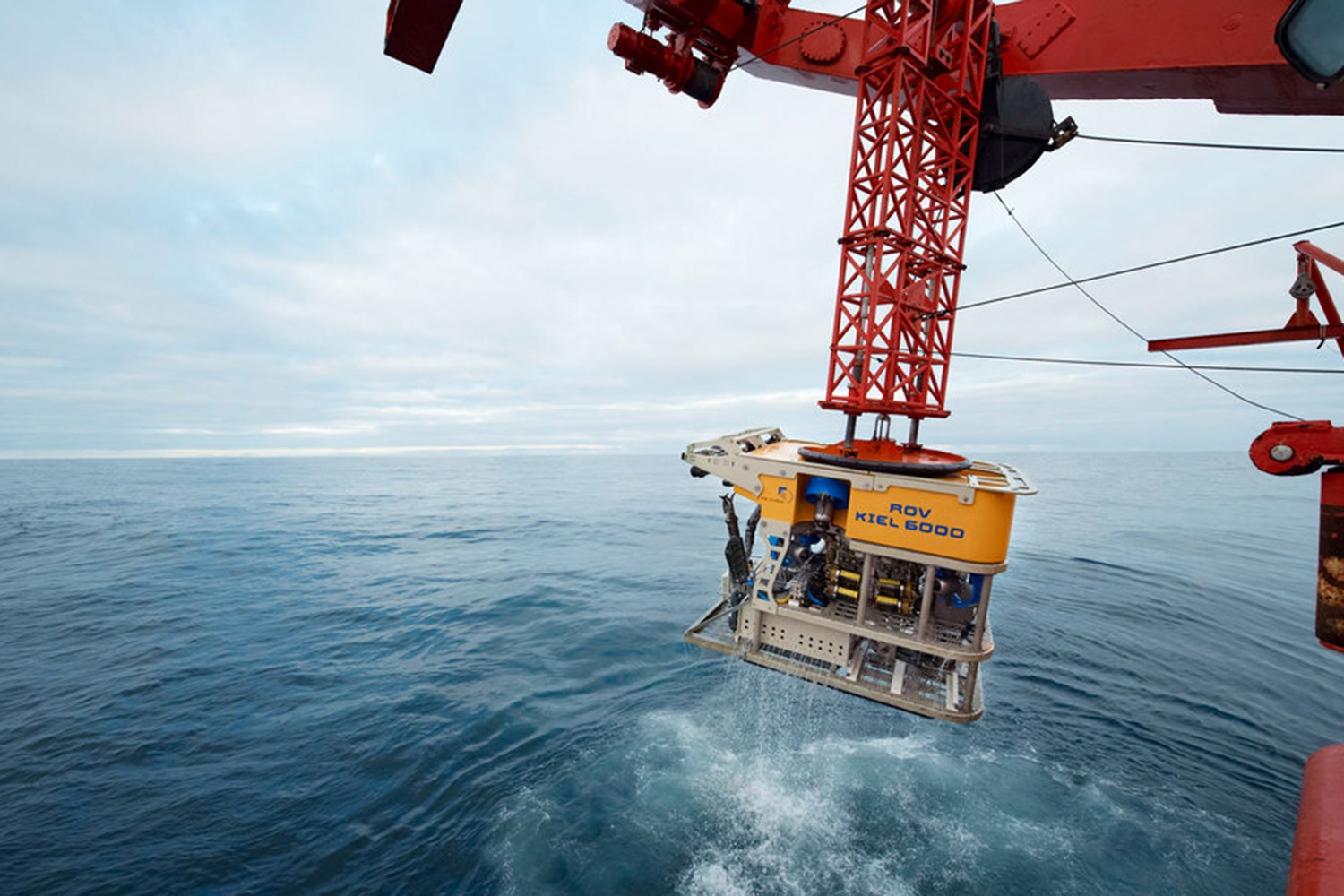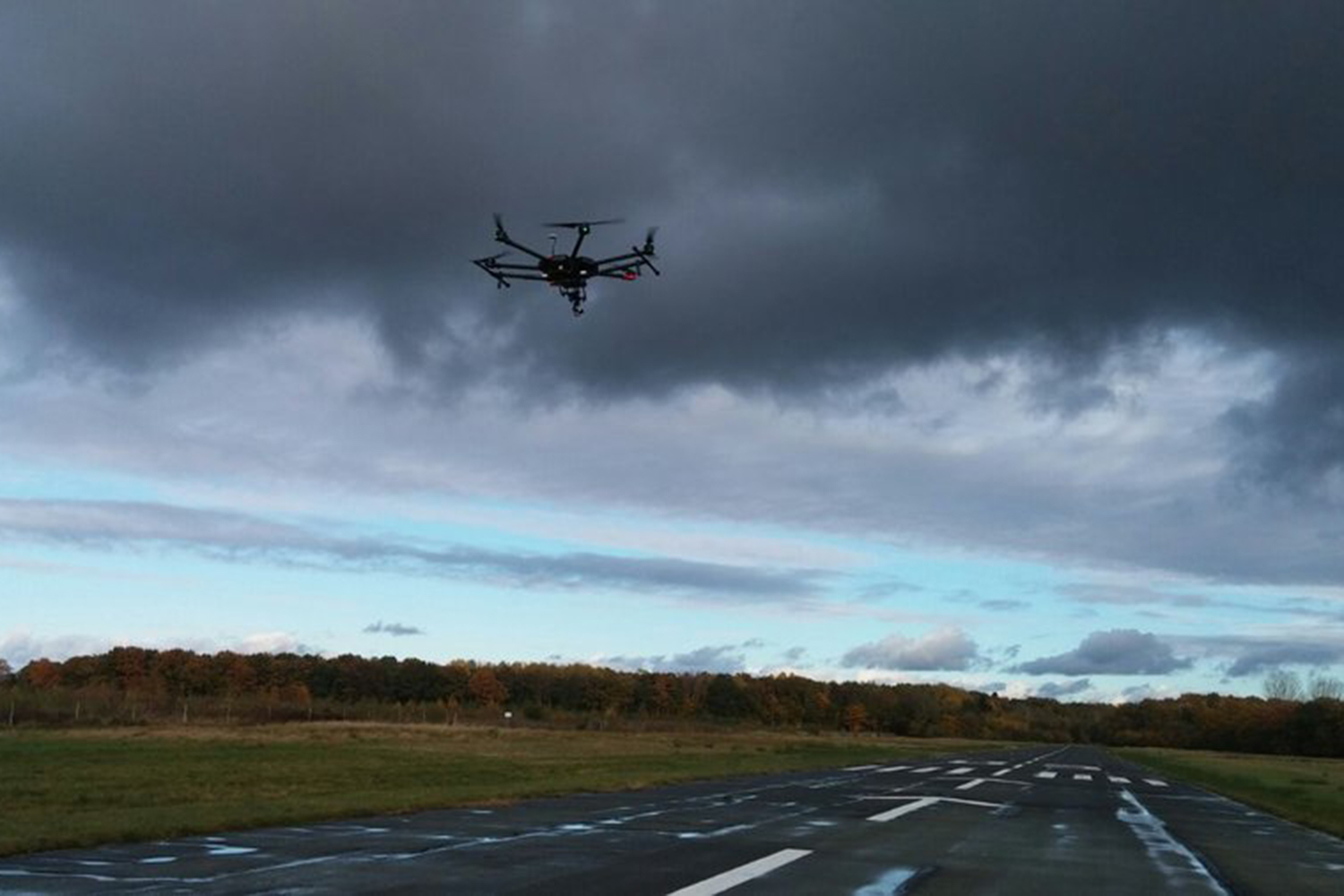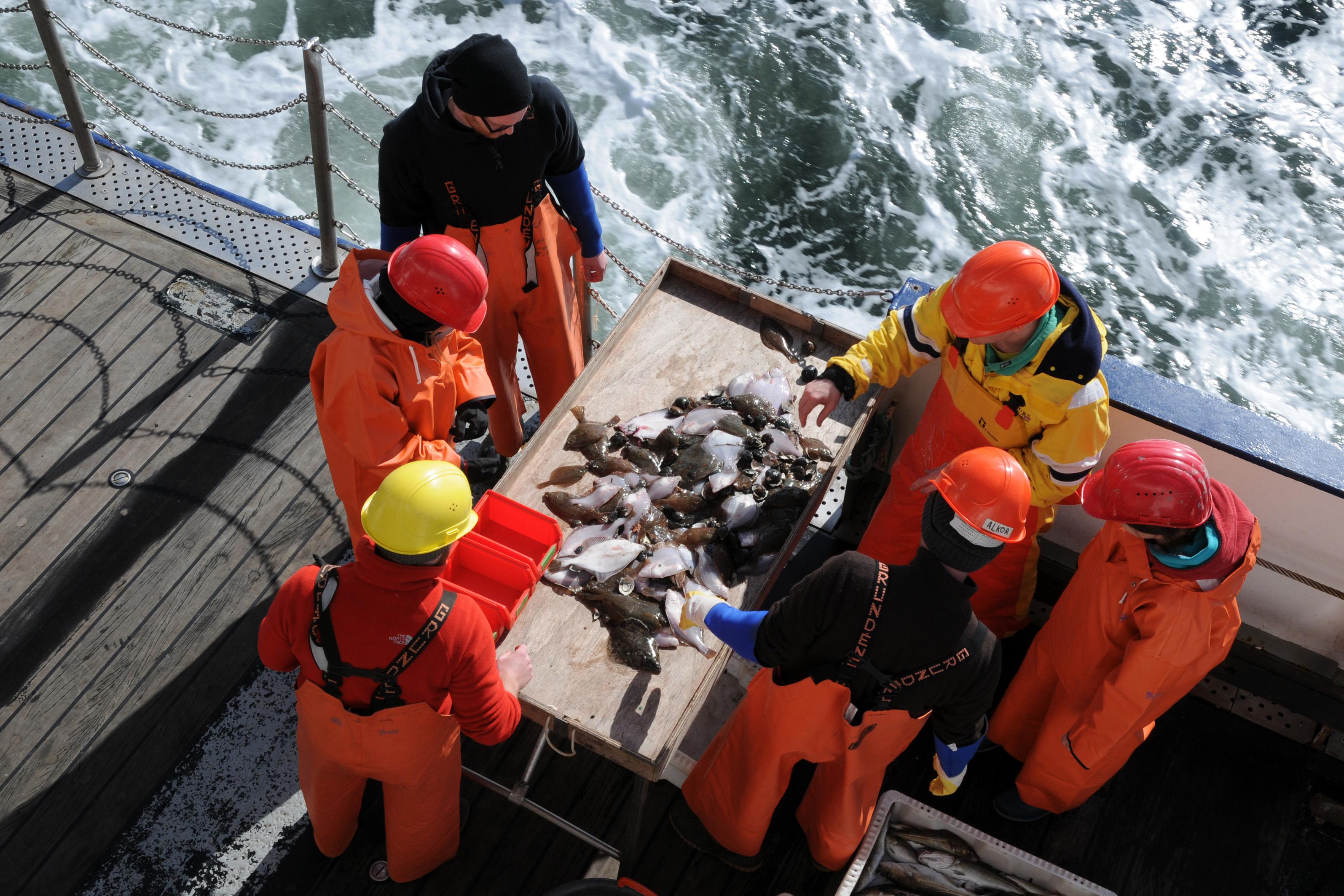In an interdisciplinary study, scientists from the Cluster of Excellence “The Future Ocean“ at the GEOMAR Helmholtz Centre for Ocean Research Kiel and Kiel University (CAU), together with international colleagues, studied the reliability of the MSC seal for Northern European fish stocks. Their result: More than ten stocks were fished more than was economically and ecologically reasonable. The study was published online in the international journal Marine Policy.
The Marine Stewardship Council (MSC) is an international, independent and non-profit organization which certifies fish and seafood. The blue seal is highly trusted by consumers world-wide. Within the framework of the new study, 31 Northern European fish stocks in the Northeast Atlantic, which are fished according to certified sustainable fisheries in line with the standards of the MSC, were studied in regard to the size of the stock and the degree of overfishing. “We were guided by official stock estimations which also form the basis for the MSC certification,” says Dr. Rainer Froese from the GEOMAR Helmholtz Centre for Ocean Research Kiel.
The study shows that in the first year of the MSC certification eleven fish stocks were fished over the limit determined by MSC. Four stocks were even outside secure biological limits because of their small size. However, fish products from these fish stocks are still allowed to have the blue MSC seal on them. The MSC justifies this with the explanation that the stocks would recover after they have been included in the MSC program. Nevertheless, the study of the Kiel researchers does not show any recovery of the stocks: Even after a long certification period between one and ten years (on average four years) no significant changes concerning the pressure of the fisheries and the size of the stocks could be determined. In the last certification year for which data is accessible, seven stocks (44 percent of the stocks with accessible data) were overfished; five stocks were outside of secure biological limits. On the other hand, for eleven stocks the permitted stock size was well above the actual catches. This indicates that the designated fishing quotas do not correspond to the real catch possibilities. The MSC certification should however guarantee sustainable fisheries in which fishing quotas are designated correctly and complied with.
“In this way our study has shown that the regulation does not effectively limit fisheries. Moreover, for three stocks the permitted catch was exceeded by up to 50 percent,” says
Prof. Martin Quaas from the Department of Economics at Kiel University and leader of the working group Sustainable Fisheries in the Cluster of Excellence “The Future Ocean”. Apparently, so the conclusion of the authors, there was no effective control of the catches, which can hardly be reconciled with the demands of exemplary fisheries.
Until now, both at the international and the European level there is a lack of legally enforceable provisions for products from sustainable fisheries. The implementation of the standards, defined by the Food and Agriculture Organization of the United Nations (FAO), is voluntary for businesses until now. “Every company can use the term sustainable fisheries freely. Controlled standards for environmental labels do not exist in this area,” says Prof. Nele Matz-Lück from the Walther-Schücking-Institute for International Law. “Eco-labels for overfished stocks may be, strictly speaking, ‘legal’, they are not, however, legally defensible,” Matz-Lück continues.
Therefore, the authors of the study recommend changing the guidelines of the MSC to the effect that overfishing and unsure population sizes would lead to the immediate suspension of the certification. “When purchasing fish products, you should prefer products with the MSC label over products without the label, however, in order to preserve the consumer’s trust in MSC, they should work on their credibility,” continues lead author Dr. Silvia Opitz from GEOMAR.
Additional statement from May 25, 2016:
Meanwhile, first reactions of the MSC have become known. Here they claim that the study used its own and inappropriate points of reference for the assessment of overfishing and the too small population sizes. This is not correct. The corresponding official documents of the International Council for the Exploration of the Sea (ICES) are openly available and both overfishing, such as the “fishing pressure” on the mackerel http://www.ices.dk/sites/pub/Publication%20Reports/Advice/2015/2015/mac-nea.pdf, as well as the too small population size, such as "stock size" of the herring from Norway http://www.ices.dk/sites/pub/Publication%20Reports/Advice/2015/2015/her-noss.pdf are clearly revealed there and labeled in red as poor. “The decisive question still remains unanswered by the MSC: Why are fish products being certified whose stocks are being fished over the maximal sustainable value according to current official stock estimations or which are outside of secure biological limits?” says co-author Dr. Rainer Froese from GEOMAR.
Original work
Silvia Opitz, Julia Hoffmann, Martin Quaas, Nele Matz-Lück, Crispina Binohlan, Rainer Froese, Assessment of MSC-certified fish stocks in the Northeast Atlantic. Marine Policy 71 (2016), 10-14. doi:10.1016/j.marpol.2016.05.003
Contact
Dr. Silvia Opitz, GEOMAR Helmholtz Centre for Ocean Kiel,
Telephone: 0431-600-4522
sopitz@geomar.de
Friederike Balzereit, Public Outreach, Cluster of Excellence „The Future Ocean“
Telephone: 0431-880-3032
fbalzereit@uv.uni-kiel.de
…
